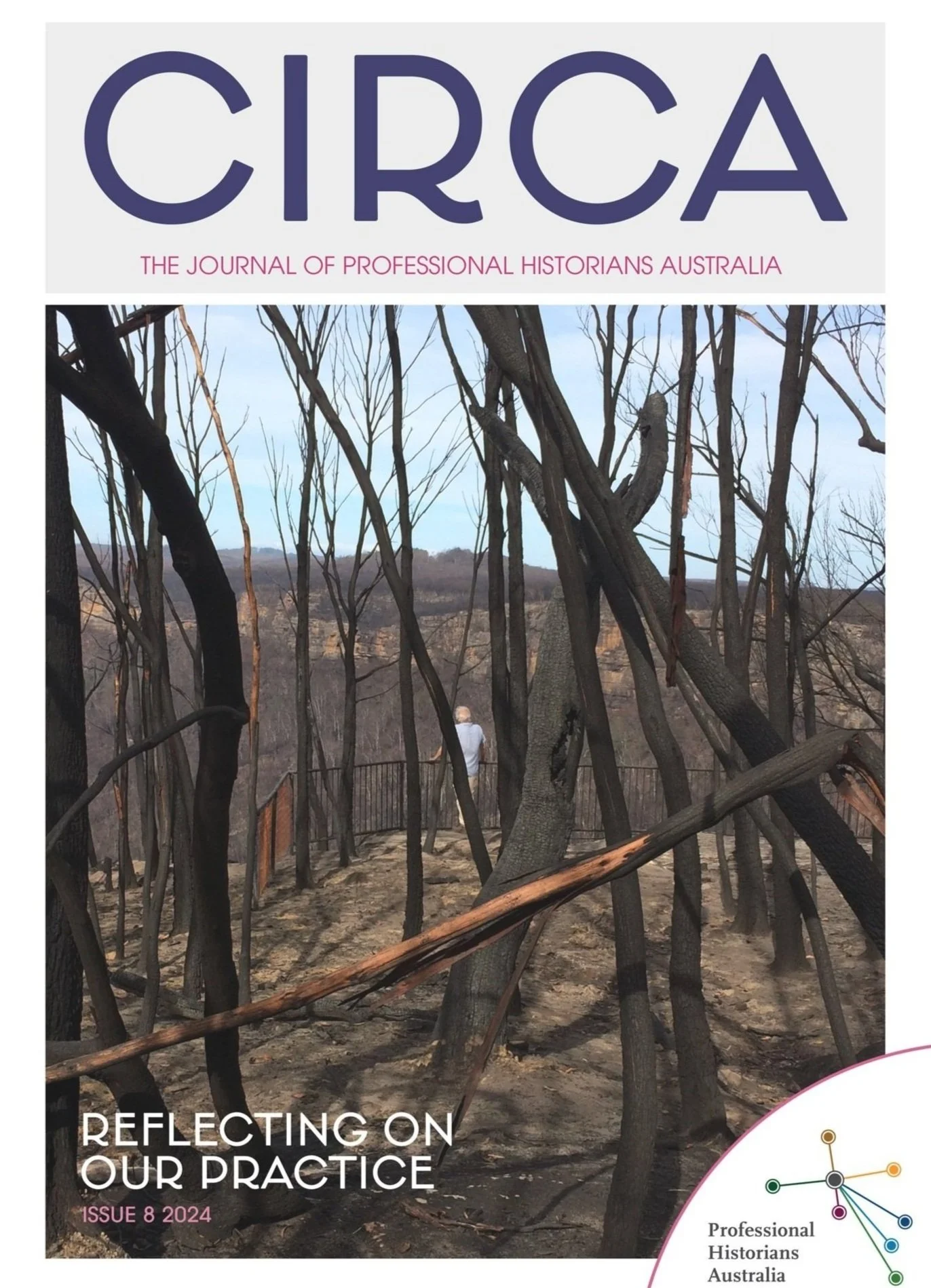Read the Newest Issue of Circa: The Journal of Professional Historians
The latest issue of its journal, Circa: The Journal of Professional Historians, is out now. Click here to read the new issue.
Co-editors Francesca Beddie and Elizabeth Offer, as well as the Editorial Board, are pleased to present issue 8 of Circa, based on the PHA Adelaide Conference held in 2023.
With an all-new look and layout, Circa continues to explore the practices, work and challenges of professional historians.
This issue of Circa begins with two compelling essays that reflect on the practice of history, both in the recent past and in the future, offering optimism for public historians about the potential impact of their work. The essays are followed by five peer-reviewed articles that tackle the big questions and issues historians face today: the place of AI in history-making, how to capture material from social media, the impact of institutional and organisational histories, and the benefits of cross-collaboration in enhancing family histories. The interlude, a lovely poem that reflects on the tussles we have with clients, is followed by a review section focusing on non-traditional histories, including contemporary Indigenous dance performances, table-top games, community oral history and showcasing difficult histories in the museum space. Read the latest issue of Circa here and feel free to circulate the work of your fellow members far and wide.
The prize winner is Roland Leikauf and his article “The impact of AI tools on the histrocial profession”
Dr Leikauf's "The impact of AI tools on the historical profession" addresses a topic that ranges across all four of these criteria. It frames the ubiquitous issue of artificial intelligence in a way that is accessible to, and meaningful for, historians. Dr Leikauf not only points out the challenges but also the potential of AI for the profession. The usefulness and timeliness of this article demonstrates advocacy for history and advancement of the profession within changing research and writing contexts. Fittingly, Dr Leikauf adopts an historical approach, giving us a sense of how this big challenge to the profession evolved. He then presents very important material for professional historians to consider about their practice and the legal and ethical concerns they are likely to face.
The judges also highly commended Dr Carolyn Rasmussen's essay "The therapeutic function of the commissioned historian", as a thoughtful and beautifully written reflection on the practice of the commissioned historian and on the possible benefits to commissioning organisations of having their histories - institutional biographies - told.
We also welcome submissions for the next issue (no. 9) of Circa, set to be published in 2026. To find out more, please visit the webpage.


